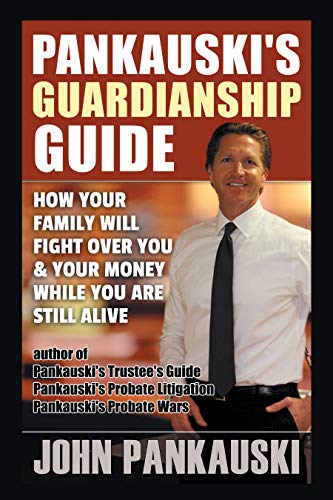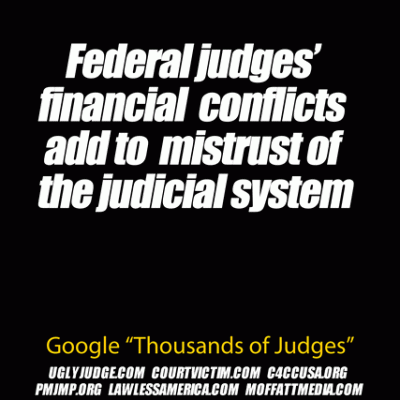Pankauski’s Guardianship Guide: How Your Family Will Fight over You & Your Money While You Are Still Alive

Get a behind the scenes look at adult guardianships… What are the pros and cons, risks, and rewards to consider when someone in your family files for guardianship? Pankauski’s Guardianship Guide provides a first-hand view of the stark reality of what it means when one of your family members claims that you are incapacitated, incompetent, or unable to manage your affairs. In those circumstances, you may find yourself in a guardianship court, represented or opposed by someone like guardianship litigation lawyer John Pankauski. Spouses, adult children and loved ones: learn what goes on behind the scenes at guardianship courts when family members fight to control mom or dad and their money. This book explains guardianships in an easy- to-understand, direct and straightforward approach. – How the guardianship court is one of the new battlegrounds of the “fight for your wealth” – Sisters fighting with brothers, brothers fighting with in-laws, second and third spouses fighting with everybody over whether a senior family member can manage his or her own affairs or not – Who is going to control all that money and property – The unique role of a power of attorney, or trustee, of someone’s living trust and why they get special attention in the guardianship court – The secrets behind how a guardianship may not be needed, even if someone is incapacitated and incompetent John Pankauski is the managing member of Pankauski Hauser PLLC (www.phflorida.com), a boutique litigation and appellate law firm in West Palm Beach, Florida. The firm handles guardianship, probate, and business trials and appeals throughout Florida. Now, after years of representing clients in Florida guardianship courts, Pankauski takes you through the battle grounds and minefields of guardianships. Read More




